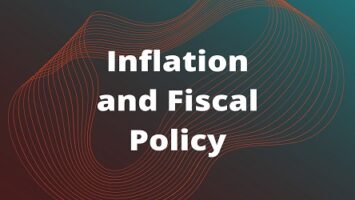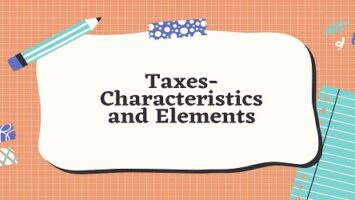Canons of Public Expenditure:
Prof. Shirras has given some canons of public expenditure, which are as follows:
(1) The Canon of Benefit- The ideal of this canon is a maximum social advantage, i.e., public expenditure should be so planned as to yield maximum social advantage and social welfare to the community as a whole and not to a particular group of the community, “other things being equal, public expenditure should bring with it important social advantages, such as increased production, the preservation of the social life against external attack and internal disorders and as far as possible a reduction in the inequality of incomes.” In short public funds must be spent in those directions, which are most conducive to the public interest, i.e., maximum utility is to be attained in public expenditure. And it is possible only when public authorities spend or distribute resources among different uses in such a way that the marginal utility from all the uses is equal, i.e., when the principle of equal-marginal utility or maximum satisfaction is applied in the field of public finance.
It implies that public authorities should distribute their resources in the above manner so as:
- To increase the total production of the country as a whole.
- To maintain sufficient army and police for the preservation of the community against external attack and internal disorders.
- To reduce inequalities in the incomes of the citizens.
- To maximize the welfare of the community as a whole and not of a particular group. In other words, the greatest happiness of the greatest number is the sole objective of this canon. Hence, this canon is very healthy and cannot be refuted by any student of Economics as an ideal to be achieved by the public authorities, but it is very difficult for the State to achieve it, as it is rather impossible for the State to equalize marginal social benefit received from each head by way of expenditure at one hand, and to estimate and determine the amount of total benefit conferred upon the society as a whole. Ultimately, it is concluded that the aim of every public expenditure should be to improve production and distribution in the country.
(2) Canon of Economy- The canon of economy means that the State should be economical in spending money. In the first place, the State should not spend more than the necessary amount on the items of expenditure. In second place, she should develop the productive powers of the community as much as possible. This is a positive aspect of the economy. The first consideration has a reference to the present, while the second has a reference to the future. And, the sole aim of this canon is to avoid extravagance and corruption. Social benefit can be maximized when there is no waste, and hence, this canon is a good practical rule to be followed by the public authorities. In this context, Shirras emphasized another aspect also, that “economy means protecting the interests of the taxpayer not merely in effecting economies in expenditure, but in developing revenue.” Obviously, it implies that the expenditure incurred by the State should help to expand its revenue also. This is also an important aspect that should be followed by public authorities while outlaying public expenditure.
(3) Canon of Sanction- The canon of sanction is that no public expenditure should be incurred without the action of proper authority. It means that no money should be spent unless the expenditure has been approved and sanctioned by a duly authorized person. Each government body should have the liberty of incurring expenditure up to a certain limit, on any particular item. For every expenditure beyond that limit should be incurred after obtaining the sanction of proper authority. Hence, the object of this canon is to avoid the possibilities of unwise and reckless spending for experience, this has taught people that all unauthorized spending leads to waste, extravagance, and overspending. The canon of sanction also includes that the spending authorities should spend the amount for which it has been sanctioned, and see that the sanctioned amount is properly utilized. Public accounts should always be audited and inspected at the end of the financial year. This canon of Prof. Shirras refers to the proper procedure of the formulation of the policy of public expenditure and provides a check for the arbitrariness and infusion of certain vested interests in the administration of public expenditure.
(4) Canon of Surplus- The canon of surplus believes in the avoidance of deficit in public expenditure. To put it in the words of Prof. Shirras, “Public authorities must earn their living and pay their way like ordinary citizens. A balanced budget must, as in the private expenditure, be the order of the day. Annual expenditure must be balanced without the creation of fresh credits unrepresented by the new assets.” The canon seems to be sound and secure. It implies that the State should live within her means like a private individual. And this, however, does not mean that the State should not be in debt. She can, and in fact, must borrow money. But it should have revenue enough to pay interest on the loans and build up a sinking fund for the repayment of loans.
However, a balanced budget is not always considered a virtue by modern economists. In fact, the nature of the budget depends upon the condition of the economy. In an inflationary condition, a surplus budget is desirable, as it will reduce the purchasing power in the hands of the public, and this would cause a reduction in the aggregate effective demand, and hence it may help to establish an equilibrium between demand and current output. on the other hand, a deficit budget is desirable in times of depression because it will increase the purchasing power of people, and this would increase the aggregate effective demand and may help to establish a balance between demand and current output.
Similarly, a balanced budget may be desirable, when there is full employment and price stability in the economy. Besides, a deficit budget may be used as an instrument to increase the rate of capital formation in a developing country, provided the deficit is not very large, otherwise, may create an inflationary trend in the economy.
It is, therefore, concluded that the canon of surplus has lost that importance in modern public finance, which it occupied in classical.
Besides, the above-stated canons of public expenditure, a few more canons are also suggested by some other economists. They are given as follows:
(5) Canon of Elasticity- This canon requires that the expenditure policy of the State should be able to change itself with the change in circumstances of the country, i.e., the public expenditure should be able to expand or contract according to the requirements and circumstances of the country. In fact, this canon aims that the policy of public expenditure should possess such an elasticity that it may not fail in times of emergency like war or in financing large development programmes. In other words, public expenditure should be carried out in such a way that the diversion of resources in a time of emergency from one head to another may not upset the economic life of the country, for example, the construction of houses may be postponed in times of war.
(6) Canon of Equitable Distribution- This canon requires that the public expenditure should be carried out in such a way that the inequalities in the distribution of income are reduced, i.e., public expenditure should ensure just and equitable distribution of income among different groups of the community. This objective can be achieved by conferring more benefits on the poor section of the community by way of public expenditure in the form of medical, education, housing, old age pension, etc. This canon is more significant for the countries where there are large inequalities in the distribution of income, and hence developing countries like India have given it a practical shape in the economic activities of the Stae and their fiscal policies, for example, priority in employment and benefits in education are provided for some backward classes of the community. Similarly, some institutions have been established for the benefit and development of only small farmers, and weaker sections of the community. i.e. Integrated Rural Development Programme (IRDP).
(7) Canon of Productivity- It implies that the expenditure policy of the State should encourage the production of the country as a whole. Obviously, more and more public expenditure should be directed towards productive and development purposes. It is more true for underdeveloped countries, “a vast expansion of public expenditure is needed to increase the output of social and public services and amenities for community consumption.” Hence, maximum employment, output, and income should be the primary goal of public expenditure.









Comments (No)